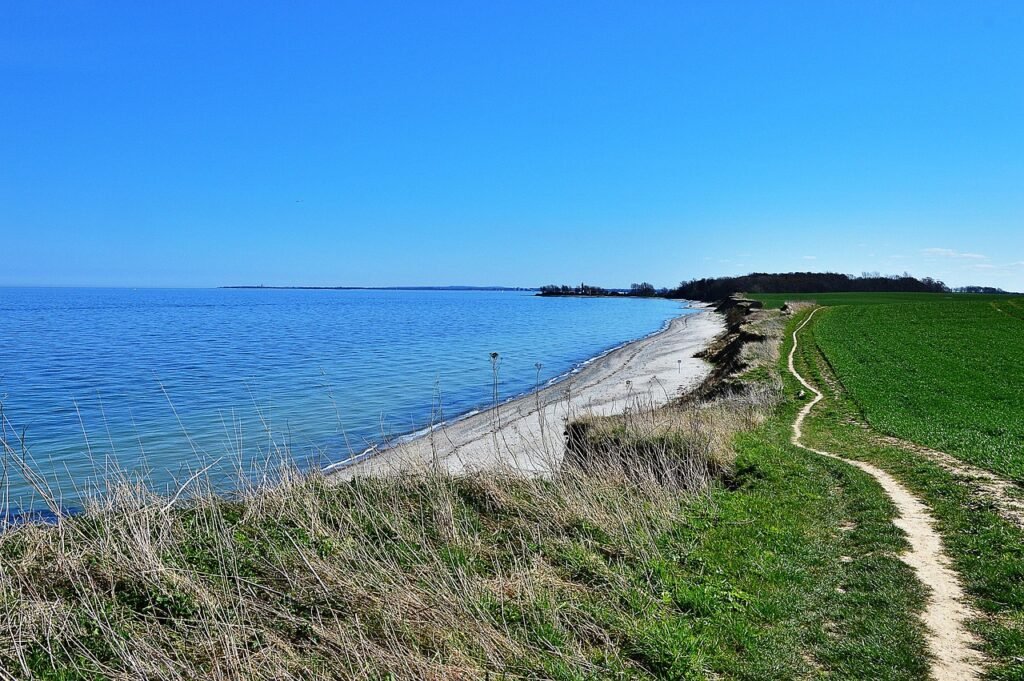Imagine sinking your toes into warm, powdery sand, the rhythmic crash of waves a constant, soothing soundtrack. The sun kisses your skin as you gaze out at the endless expanse of turquoise water. Beaches – more than just scenic landscapes, they offer a sanctuary for relaxation, recreation, and connection with nature. This guide explores the multifaceted allure of beaches, covering everything from their ecological significance to tips for planning your perfect beach getaway.
The Irresistible Appeal of Beaches
Physical and Mental Well-being
Beaches offer a unique blend of physical and mental health benefits. The salty air is rich in negative ions, which are believed to reduce stress and boost mood. Studies have shown that spending time near water can lower cortisol levels (the stress hormone) and increase feelings of well-being.
- Vitamin D Boost: Sunshine provides essential Vitamin D, vital for bone health and immune function. Remember to use sunscreen to protect your skin.
- Natural Exercise: Swimming, walking, or playing beach volleyball provides enjoyable physical activity.
- Mindfulness and Relaxation: The repetitive sound of waves and the expansive horizon promote mindfulness and reduce anxiety.
Social Connection and Recreation
Beaches are ideal places for social gatherings and recreational activities. Families, friends, and even solo travelers can find something to enjoy.
- Family Activities: Building sandcastles, searching for seashells, and playing frisbee are classic beach activities for families.
- Water Sports: Surfing, paddleboarding, kayaking, and snorkeling offer thrilling experiences for adventure seekers.
- Beach Bonfires: Many beaches permit bonfires, creating a cozy and social atmosphere in the evenings (check local regulations).
- Community Events: Beaches often host festivals, concerts, and sporting events, fostering a sense of community.
Exploring Different Types of Beaches
Sandy Beaches
Sandy beaches are the most common and popular type, characterized by their soft, granular sand. The composition of the sand varies depending on the location, ranging from fine white sand to coarser, darker grains.
- White Sand Beaches: Often found in tropical destinations, white sand beaches are composed of eroded coral and offer stunning aesthetics. Examples include beaches in the Maldives and the Caribbean.
- Black Sand Beaches: Formed from volcanic rock, black sand beaches offer a dramatic and unique landscape. Examples include Punalu’u Beach in Hawaii and Reynisfjara Beach in Iceland.
- Golden Sand Beaches: These beaches have a warm, golden hue due to the presence of iron minerals. They are common in many coastal regions around the world.
Pebble Beaches
Pebble beaches are characterized by smooth, rounded stones instead of sand. While they may not be ideal for sunbathing, they offer a unique and rugged beauty.
- Dungeness Beach, UK: A vast expanse of shingle with a hauntingly beautiful landscape.
- Limekiln State Park, California: Features a mix of pebbles and sand, surrounded by dramatic cliffs.
Rocky Beaches
Rocky beaches are characterized by large rocks and boulders, often offering tide pools teeming with marine life. These beaches are great for exploring and discovering coastal ecosystems.
- Acadia National Park, Maine: Features a rugged coastline with granite cliffs and rocky shores.
- Big Sur, California: Offers dramatic coastal scenery with towering cliffs and rocky beaches.
Beach Safety and Environmental Considerations
Sun Safety
Protecting yourself from the sun is crucial for a safe and enjoyable beach experience.
- Sunscreen: Apply a broad-spectrum sunscreen with an SPF of 30 or higher at least 20 minutes before sun exposure. Reapply every two hours, or more often if swimming or sweating.
- Protective Clothing: Wear a wide-brimmed hat, sunglasses, and long-sleeved clothing to shield your skin from the sun.
- Seek Shade: Find shade during the peak sun hours (10 AM to 4 PM) to reduce your risk of sunburn.
Water Safety
Understanding water safety is essential for preventing accidents.
- Swim in Designated Areas: Only swim in areas that are designated for swimming and patrolled by lifeguards.
- Be Aware of Rip Currents: Rip currents are powerful channels of water flowing away from the shore. If caught in a rip current, swim parallel to the shore until you are out of the current.
- Supervise Children: Always supervise children closely when they are near the water.
Protecting the Beach Environment
It is our responsibility to protect the delicate beach environment.
- Leave No Trace: Pack out everything you pack in, including trash and food wrappers.
- Respect Wildlife: Observe marine life from a distance and avoid disturbing their habitat.
- Avoid Single-Use Plastics: Bring reusable water bottles, shopping bags, and containers to reduce plastic waste.
- Support Sustainable Tourism: Choose eco-friendly accommodations and activities that minimize environmental impact.
Planning Your Perfect Beach Vacation
Choosing the Right Destination
Consider your interests and preferences when selecting a beach destination.
- For Relaxation: Look for secluded beaches with calm waters and minimal crowds.
- For Adventure: Choose beaches with opportunities for water sports, hiking, and exploring.
- For Families: Opt for beaches with shallow waters, playgrounds, and kid-friendly activities.
Packing Essentials
- Swimsuit: A must-have for any beach vacation.
- Sunscreen: As mentioned earlier, essential for sun protection.
- Beach Towel: Choose a lightweight and quick-drying towel.
- Sunglasses: Protect your eyes from the sun’s glare.
- Hat: Provides shade and protects your face and neck.
- Flip-Flops or Sandals: Comfortable footwear for walking on the sand.
- Beach Bag: To carry all your essentials.
- Water Bottle: Stay hydrated throughout the day.
- Snacks: Pack some healthy snacks to keep you energized.
- First-Aid Kit: Include bandages, antiseptic wipes, and pain relievers.
Tips for a Budget-Friendly Beach Trip
- Travel During the Off-Season: You’ll find lower prices and fewer crowds.
- Look for Package Deals: Combine flights and accommodations for potential savings.
- Cook Your Own Meals: Rent a vacation rental with a kitchen and save money on dining out.
- Take Advantage of Free Activities: Many beaches offer free activities, such as swimming, sunbathing, and hiking.
Conclusion
Beaches are more than just picturesque destinations; they are places of relaxation, recreation, and connection. By understanding the different types of beaches, prioritizing safety, and protecting the environment, we can all enjoy these natural wonders for years to come. So, pack your bags, grab your sunscreen, and get ready to experience the magic of the beach!

